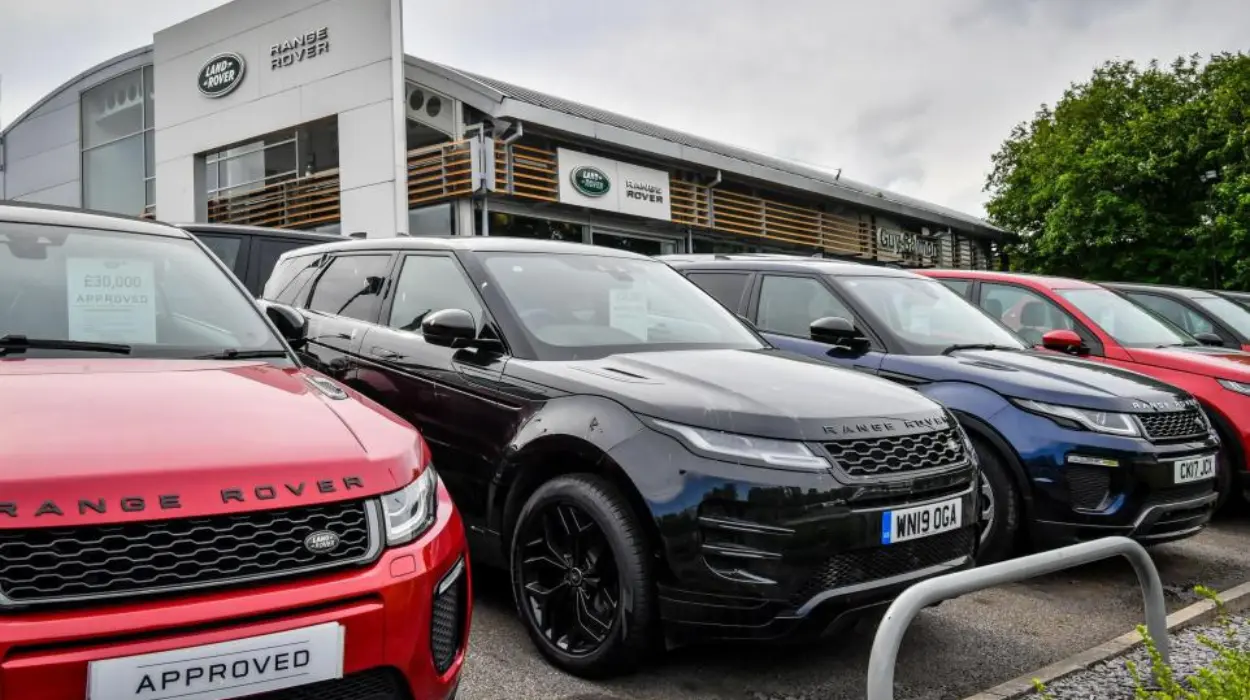UK (Parliament Politics Magazine) – UK car dealer Vertu Motors warns JLR cyber attack could cut up to £5.5m from annual profits, hitting September sales and luxury car operations.
As reported by The Standard, British car dealer group Vertu Motors warns it may lose up to £5.5m in yearly profits following hacker disruption at Jaguar Land Rover showrooms.
The head of Vertu called September disruptions “disappointing for the industry,” highlighting the impact on plate-change registrations.
How JLR cyber attack could cost Vertu Motors £5.5M in profits?
Jaguar Land Rover stopped production across its UK factories after a major cyber attack, disrupting its operations and supply chain. Some of JLR’s factory operations are set to resume on Wednesday.
The UK car retail giant Vertu warned of a potential £5.5 million loss in annual pre-tax profit, depending on how quickly JLR restores its systems and trading after the disruption.
The company reported a £2 million impact on September sales due to the outage.
For the six months to August, Vertu Motors posted £20 million in adjusted pre-tax profit, a 10% decline from last year. They hit a record £2.51 billion in the half-year, up from £2.47 billion last year.
Sales of battery electric vehicles rose 82.4% from last year. Vertu attributed growth to affordability, with several models priced below £30k, and some even under £20k.
The government’s new summer BEV grants are expected to increase demand for the models in the year’s second half.
The company warned that the car market still faces disruption from the UK’s zero-emission vehicle rules and political uncertainty.
Under the ZEV rules, 28% of UK new cars must be electric in 2025, increasing to 80% by 2030.
Vertu added that the guidelines continue to
“weigh heavily on both manufacturers and retailers and has resulted in low overall volumes in the new vehicle market in the UK.”
What did Robert Forrester say about Vertu’s JLR disruption?
Vertu’s chief executive Robert Forrester stated,
“The group has performed well despite continued upheaval in the new car market due to the Government’s policy to electrify the UK car parc.”
He said,
“It was disappointing for the industry to face major disruption across the JLR network following a cyber-attack on the manufacturer during the key plate-change month of September.”
Mr Forrester added,
“I was in awe of the way that our teams reacted to the disruption on customers and to minimise the impact in our 10 JLR dealerships, with the full support of JLR which has responded admirably. Whilst the situation is fluid, it appears to be easing in recent days.”
He continued that the firm may file an insurance claim under its policy for disruptions caused by external system failures.
When did the JLR cyber attack halt global production?
The Jaguar Land Rover cyber attack occurred on August 31, 2025. Hackers from the group “Scattered Lapsus$ Hunters” breached JLR’s IT systems. This caused a global shutdown of manufacturing facilities.
The attack halted production worldwide, including UK plants, resulting in estimated losses between £50 million and £500 million per week. Some analysts said daily losses could reach £7.1 million, with total losses potentially hitting £4.7 billion if the shutdown continues into November.
The disruption impacted over 200,000 jobs across the supply chain, forcing many suppliers to lay off workers. JLR, lacking cyber insurance coverage at the time, bore the full brunt of the financial losses. The UK government intervened with a £1.5 billion loan guarantee to support the firm.
CIPS survey about rising cyber threats
Nearly one-third of executives report rising cyber-attacks on supply chains.
A survey by the Chartered Institute of Procurement and Supply shows cyber threats rising as a top concern for procurement managers.
The poll revealed that 29% of managers reported recent cyber-attacks on businesses within their supply chains.
Ben Farrell, CEO of CIPS, stated,
“The nature of global trade, the way we look at global supply chains and the digital supply environment are ever more interconnected.”
He added,
“Organisations are increasingly enabled by other organisations. Gone are the days of thinking of an organisation as an entity operating in isolation.”
According to CIPS, supply chain bosses worried over Middle East conflicts and US tariffs under Donald Trump in the first half of the year.


